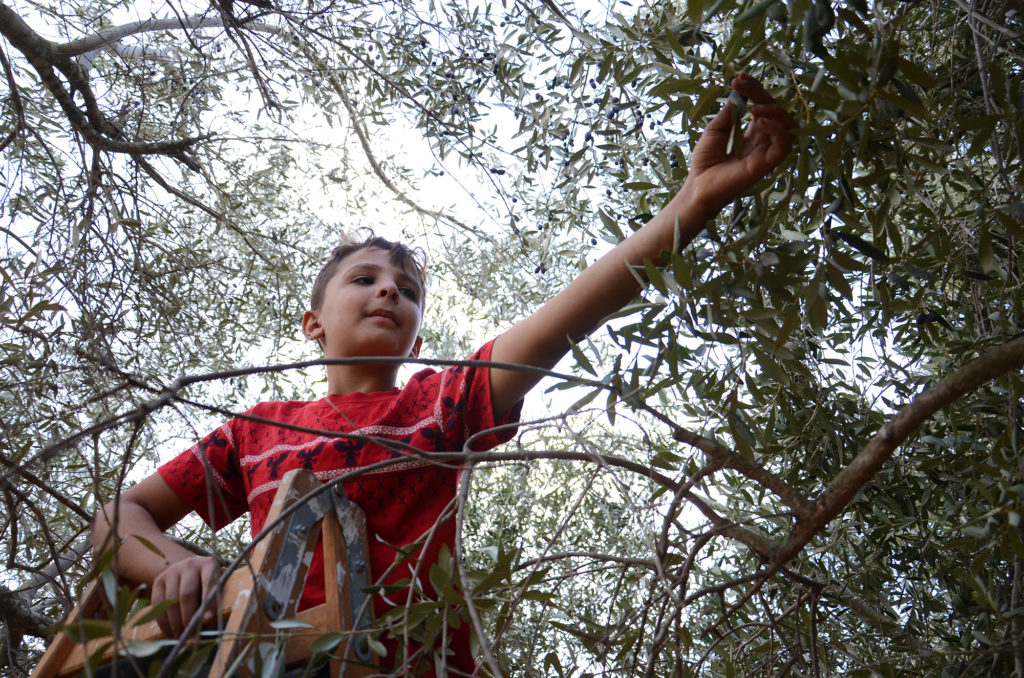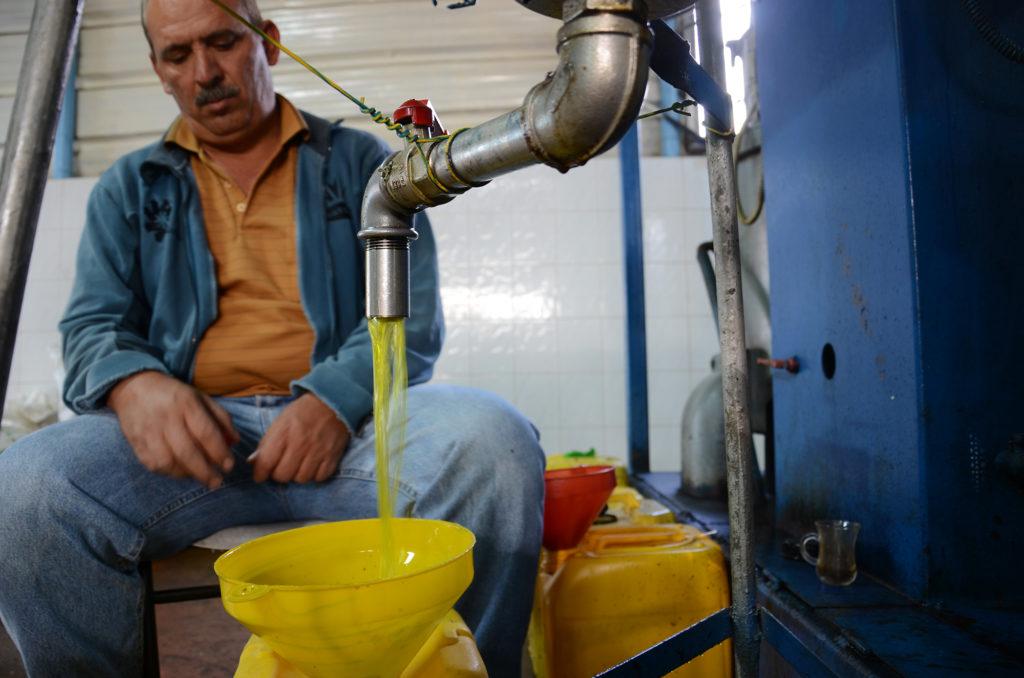How Palestinian Farmers Cherish an Ancient Tradition
Posted in: Voices from the field
In our Jerusalem office, we all know it’s olive harvest season when our colleague Ma’moun, our maintenance officer, takes an entire week off. Last week, he returned after a week off with a great feeling of fulfillment. He had turned a batch of ripe olives into luscious olive oil.
Farmers across Palestine feel the same way: an immense sense of accomplishment and pride. After long days and nights in their olive groves, their efforts will help put olive oil, a healthy staple of Palestinian cooking, on every kitchen table. Olive oil is also used to make traditional handmade soaps.
These days, it’s not a peculiar sight to find olive groves buzzing with women after the break of dawn. One such woman is Myassar Fatafta, a young grandmother from Tarqumia, in the district of Hebron in the West Bank. “We’ve been here since the early morning,” she explains. “The men are all in the mosque for morning prayers, so it’s just us women harvesting olives for now. They’ll join later.” Myassar is a single mother who has raised five children after the passing of her husband. “This land sustains me and my seven fatherless children. The olive tree means everything to me.”
The olive tree means everything to me.
Right on the edge of Tarqumia, the Al-Qaissis family has gathered to harvest its trees. They are right off a main road that separates Tarqumia from the neighboring village of Idhna.
The grandparents, children and grandchildren of Al-Qaissis diligently hand-pick ripe olives off intertwined tree branches. Some use ladders, some stand on their own feet and others crouch on the ground, sorting and separating leaves and twigs from the fruit.
At one point, young Abed seemed to have gone amiss. “I’m here,” he laughs from amidst the branches in a tree, where he had climbed to reach the top.


Young Abed climbs to the top of an olive tree in Tarqumia, West Bank.
A beautiful gathering like this one is made perfect with a hot cup of fresh coffee or sweet mint tea. Because farmers spend all day and night in the fields, they pack light snacks and cold beverages On their breaks, they heat tea and coffee over small open fires as they give their weary bodies some rest.
The bustling Idhna olive press is located right at the entrance of Tarqumia. The pungent scent of olive oil fills the air as farmers await their turn to use the press. Each farmer empties his sack of olives into a large container that transfers the olives onto a conveyor belt for washing, separating and crushing. The solid remains of olives, or the pomace, are separated and placed into a container. The journey continues for the liquids, as a machine separates the olive oil from the wastewater.
At the other end of the facility, farmers gather to collect their olive oil. Each farmer is seated in front of a faucet that flows with beautiful and silky green olive oil. Small farmers opt to use the product for their personal household consumption, while others produce enough to sell and help sustain their families.
Thabet and Adel Msallam Tmaizi are two brothers who own the press. “We’ve had 400-500 farmers come in to press olives from Idhna, Tarqumia and neighboring areas,” explains Thabet. “Last year it was around 600-700.”


A Palestinian man presses olives into olive oil at an olive press in Idhna, West Bank.
Olive oil is green gold.
The press is supervised by the Ministry of Agriculture, but support remains limited. Adel believes that olive presses across the West Bank are in constant need of maintenance in order to preserve this precious tradition. “Olive oil is green gold. We need the continual support of local and international organizations to preserve it.”
Like an active beehive, the facility is restless. “We work until we finish the day’s batch of olives, even if it means working around the clock. Today we opened the press at five o’clock in the morning, and we expect to close late at night,” says Thabet.
Like we say each year as the season comes to a close, kul ‘am wa antom bikheir: may the season find you in good health each and every year.
